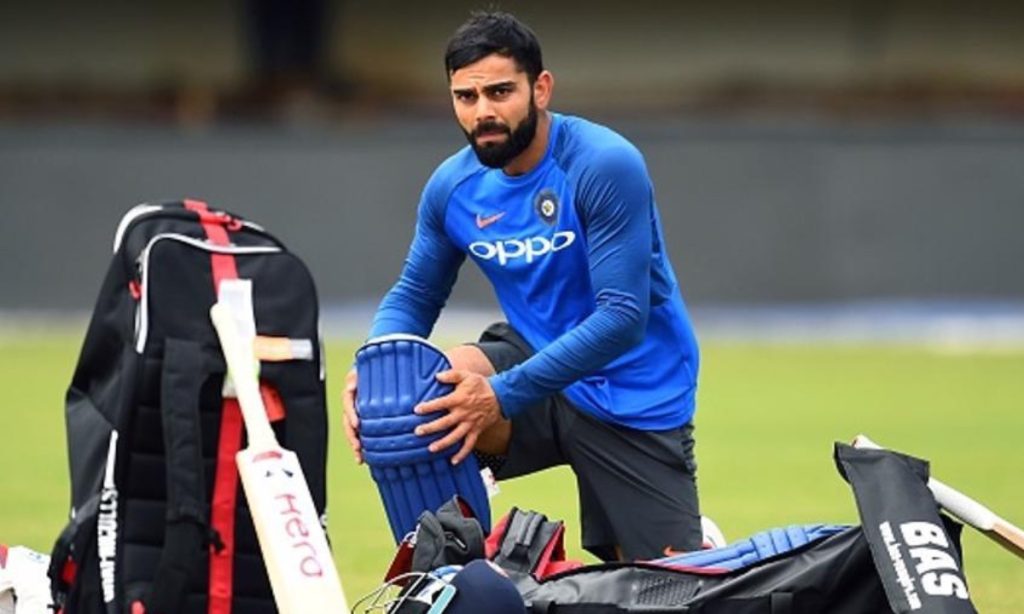Inricket’s c history, few moments capture the raw emotion and vulnerability of a player quite like when Virat Kohli, one of cricket’s most fiery and passionate figures, found himself pleading with a match referee not to ban him. This incident, which occurred during India’s tour of Australia in 2011-12, not only highlighted Kohli’s fiery temperament but also his human side, which is often overshadowed by his on-field aggression.
The backdrop was the Sydney Cricket Ground, where Kohli, then a young and upcoming batsman, was fielding close to the boundary. The Australian crowd, known for its boisterous nature, was relentless in its jeering. In a moment of frustration, Kohli responded with a gesture that would make headlines for all the wrong reasons – he showed the crowd his middle finger. This act, while perhaps understandable in the heat of the moment, violated the spirit of the game and led to a confrontation with the match referee, Ranjan Madugalle, the following day.
Kohli, in a rare moment of vulnerability, recounted this episode in an interview years later, expressing how he pleaded, “I’m so sorry, please don’t ban me!” when confronted with the newspaper clipping of his indiscretion. This plea wasn’t just about avoiding a ban; it was a moment of realization for Kohli, understanding the implications of his actions on his burgeoning career.
“Yeah, the one thing I remember most is when I’d had enough of the Australian crowd at Sydney and I just decided to flick a finger at them. ‘I’m so cool’. The match referee called me to his room the next day and I’m like, ‘What’s wrong?’. He said, ‘What happened at the boundary yesterday?’. I said, ‘Nothing, it was a bit of banter’,” Kohli Said.
“Then he threw the newspaper in front of me and there was this big image of me flicking on the front page and I said, ‘I’m so sorry, please don’t ban me!’,” he added.
The incident in Sydney could have been a career-defining moment in a negative way, but it turned into a pivotal point for Kohli’s growth. Instead of succumbing to the pressure or letting his career derail, Kohli used this as fuel. His performance in the subsequent matches, especially his maiden Test century in Adelaide, showcased not just his batting prowess but also his resilience. Kohli’s journey from this low point to becoming one of cricket’s most celebrated figures is a testament to his character.
This episode also sheds light on the broader theme of player behavior in cricket. Cricket, often termed as a gentleman’s game, expects its players to uphold certain standards of conduct. Kohli’s incident, while not condoned, opened discussions on the pressures players face, especially in hostile environments like the Australian cricket grounds. It highlighted the need for players to manage their emotions, a skill Virat Kohli has since honed, transforming into a leader who often praises his opponents and maintains decorum, even in the face of provocation.
Moreover, Kohli’s plea to the referee reflects a broader narrative in sports where athletes, despite their public personas, are human, capable of mistakes. The journey of Virat Kohli from this plea to becoming a captain who leads by example, both on and off the field, is a narrative of growth, learning, and adaptation. His ability to evolve, not just as a player but as a person, resonates with fans worldwide, making him not just a cricketing icon but a symbol of personal triumph over adversity.
In conclusion, Virat Kohli’s plea to the match referee not to ban him was more than just a moment of desperation; it was a turning point in his career. It marked the beginning of Kohli’s transformation into a cricketing legend, known not just for his runs but for his resilience, leadership, and the lessons learned from his early missteps. This story, rich with lessons on sportsmanship, personal growth, and the human spirit, continues to inspire many, reminding us that even in moments of weakness, there lies the potential for greatness.

